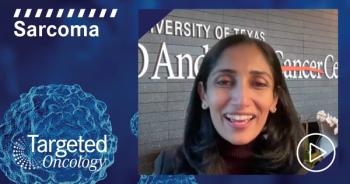
Complications With CAR T Cells in Chronic Lymphocytic Leukemia
Susan M. O'Brien, MD, associate director for clinical sciences at UC Irvine Health, shares her insights on why CAR T cells are not as successful in chronic lymphocytic leukemia as compared to lymphoma or acute lymphocytic leukemia. She also discusses what she believes must change in order for this therapy to move up in the treatment landscape for CLL.
Susan M. O’Brien, MD, associate director for clinical sciences at UC Irvine Health, shares her insights on why CAR T cells are not as successful in chronic lymphocytic leukemia (CLL) as compared to lymphoma or acute lymphocytic leukemia. She also discusses what she believes must change in order for this therapy to move up in the treatment landscape for CLL.
CAR T cells have shown activity, but because the patient’s CAR T cells are being redirected toward the leukemia and they are already usually exhausted in CLL, the cells do not function as normal. O’Brien believes that the T cells are exhausted due to the effects of chemotherapy. She suggests T cells may function better if treatments moved more toward small molecules rather than chemotherapy.
Another reason that O’Brien believes CAR T cells are not as successful in CLL is because of the toxicity of other agents. If the toxicity could be reduced, CAR T cells can be used as a last resort, but 25% of all comers end up in the ICU due to toxicities, according to O’Brien.




















